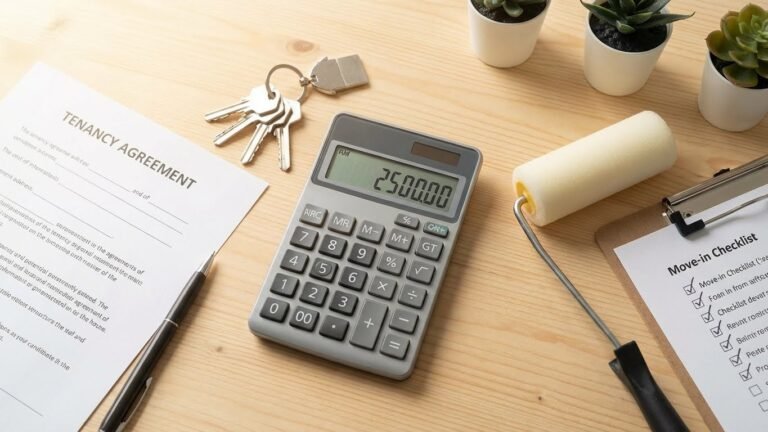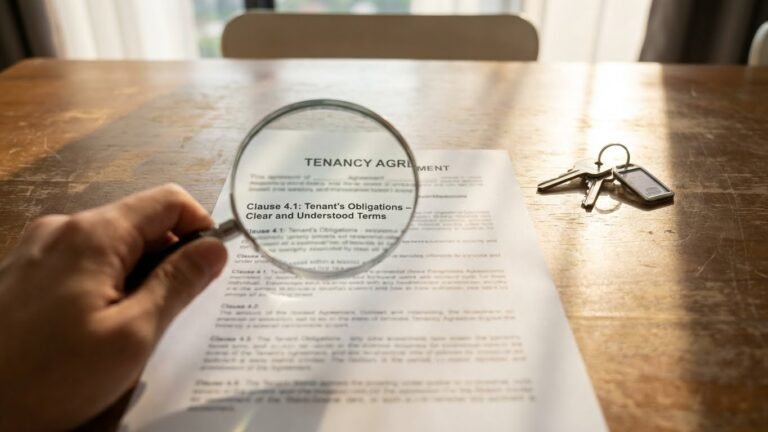Landlord Selling the House — What Happens to the Tenant? A Simple Guide for Malaysians
Selling a rented property is extremely common for landlords in Malaysia. But when a tenant receives a message saying, “I’m planning to sell the house,” the immediate reaction is usually stress and uncertainty.
Tenants often worry:
“Do I have to move out immediately?”
“Will my deposit still be safe?”
“Can the landlord force me to leave even if my contract still has months left?”
Landlords, on the other hand, may assume they have full freedom to regain possession once they find a buyer. Many believe, incorrectly, that selling the house automatically ends the tenancy. Others expect tenants to cooperate instantly without considering notice periods, rights, or the existing agreement.
Because of these misunderstandings, the process often becomes tense even though the law and common practice already provide a clear framework. With the right knowledge and a proper tenancy agreement, both parties can navigate this situation smoothly and respectfully.
This guide breaks down exactly what happens when a landlord sells a property that is still occupied by a tenant in Malaysia.
1. The Most Important Principle: Selling the Property Does Not Automatically End the Tenancy
This is the rule that most Malaysians don’t know. A tenancy agreement is a binding contract. A change in ownership does not cancel or override what both parties agreed to.
This means a landlord cannot simply say:
“I’ve sold the house, so you need to move out next month.”
or
“The buyer wants the unit empty, so you must leave.”
The tenant’s right to stay—until the agreed expiry date—remains valid as long as the tenancy agreement is still in effect. The agreement binds the property, not just the original owner.
The only way the tenant must move out before the contract ends is if:
- the agreement includes a break clause that allows early termination, or
- both sides mutually agree to end the tenancy early.
Otherwise, the tenancy continues, and the new owner simply becomes the new landlord.
2. If the Property is Sold While Tenanted, the Tenant Usually Continues as Normal
Most of the time, the tenant does not need to do anything. The new owner takes over the tenancy, including all responsibilities previously held by the old landlord.
This means the tenant continues:
- paying the same rent
- living under the same rules
- following the same terms
- until the original expiry date stated in the agreement
The only real change is who the rent is paid to. Everything else remains the same.
For the landlord, this means:
- they must inform the tenant in writing once the sale is confirmed
- they must hand over the tenancy agreement to the buyer
- they must pass the deposits to the new owner
- they must ensure the new owner agrees to take over the tenancy
Many well-written agreements—including DIYA tenancy agreements—already include a clause that spells this out clearly. When this clause is missing, confusion and disputes become more likely.
3. But What If the Buyer Wants Vacant Possession?
This is one of the most common scenarios. Buyers who want to live in the property themselves, renovate extensively, or keep the unit empty may request that the house be delivered vacant.
But a buyer’s preference does not erase the tenant’s rights.
Here is what most people misunderstand:
Even if the buyer insists on vacant possession, the landlord still cannot force the tenant to leave immediately or before the end of the agreement unless proper procedures are followed.
The landlord must:
- provide the tenant with the notice period stated in the tenancy agreement
- follow any early termination conditions in the agreement
- communicate transparently and avoid high-pressure behaviour
If the agreement does not allow early termination by the landlord, then the landlord must negotiate with the tenant. For example, the tenant might agree to move out earlier if compensated with:
- one month of rent,
- reimbursement for moving costs,
- or another mutually agreed amount.
These arrangements are extremely common in real life and often lead to a smoother, more cooperative process.
4. What About Property Viewings? How Often Is “Reasonable”?
When a landlord is selling, potential buyers will want to view the property. This is normal, but it must be handled properly to respect the tenant’s privacy and daily life.
A reasonable arrangement includes:
- proper notice before each viewing
- an agreed time window for appointments
- no late-night or early-morning visits
- no unlimited walk-ins
Depending on the agreement, notice can range from 24–48 hours. Landlords should also group viewings together instead of asking tenants to open the door multiple times a week.
Tenants have the right to say no to unreasonable schedules. Landlords have the right to market their property. Both sides can cooperate without creating conflict when communication is respectful and expectations are set early.
5. Deposits: Who Should Hold Them After the Sale?
This is another area where Malaysians often disagree, usually because the original agreement did not spell it out clearly.
Here’s the correct process under different scenario.
Case A: The tenancy continues under the new owner
- The old landlord transfers the Security Deposit and Utility Deposit to the new owner
- The tenant does not need to pay again
- All parties should sign a simple written acknowledgment
This protects everyone and prevents future disputes.
Case B: The tenancy ends early due to the sale
If the landlord terminates early or both sides agree to end the tenancy:
- The seller (old landlord) must refund the deposits to the tenant
- The buyer should not touch the deposit
- Deductions must follow the agreement (unpaid rent, damages, utilities)
Tenants should never be asked to “reset” their deposit or pay a new deposit to the buyer when the tenancy is still valid. A proper agreement prevents this common problem.
6. What If the Landlord or Buyer Ignores the Agreement?
Unfortunately, this still happens. Some landlords pressure tenants to move out early. Some buyers expect tenants to leave immediately. Some tenants refuse all viewings or ignore notices.
To avoid escalation:
- keep communication in writing
- refer back to the tenancy agreement
- set clear timelines
- avoid emotional or threatening language
- document the condition of the unit
- follow the notice periods exactly
Most disagreements calm down when both sides realise the agreement already outlines the correct process.
7. Can the Tenant Negotiate for Benefits? Yes — and Many Do.
In many actual cases in Malaysia, tenants often negotiate when a landlord decides to sell. Here are common win–win solutions:
- Tenant agrees to leave early in exchange for one month rent as compensation
- Landlord covers part of the moving cost
- Tenant stays but gets a small rental reduction during the viewing period
- Buyer agrees to receive the property with tenant inside until tenancy expiry
- Landlord gives the tenant extended notice or flexible dates
These negotiations allow everyone to avoid friction and unnecessary costs.
8. Almost All Problems Come From Unclear Agreements
Most disputes about selling a rented property don’t happen because one side is unreasonable. They happen because the tenancy agreement was vague, incomplete, or borrowed from an outdated online template.
Common missing points include:
- What happens if the property is sold
- Whether the tenant must allow viewings
- What notice the landlord must give
- Who holds the deposit after the sale
- Whether early termination is allowed
- How compensation should be handled
When these details are missing, both sides end up assuming what they think is “fair”, and conflict becomes almost inevitable.
That’s why our bilingual DIYA tenancy packs include a clear clause that explains exactly what happens when ownership changes. Both landlord and tenant understand their rights from day one, long before any sale happens.
A good agreement won’t stop a landlord from selling the unit — but it ensures everyone knows the proper process, timeline, and expectations.
If you want peace of mind for future tenancies, the DIYA Tenancy Agreement Packs (Pro-Landlord and Pro-Tenant) include:
- bilingual templates
- clear clauses for real-life Malaysian scenarios
- guidebooks that explain every section in simple language
- and structured agreements you can reuse safely every year
Understanding your rights is important — but having them written properly from the start makes everything easier for both sides.






